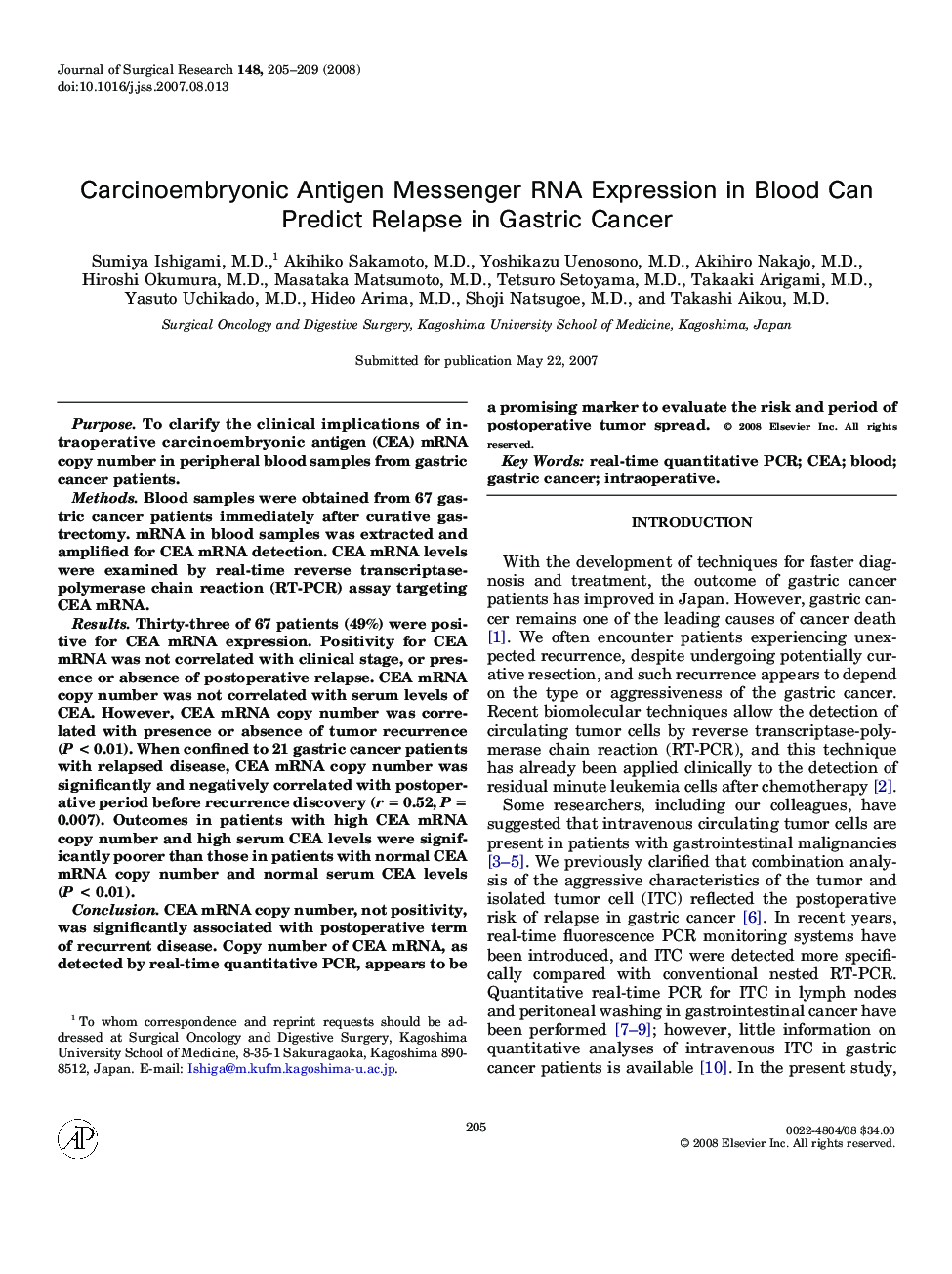| Article ID | Journal | Published Year | Pages | File Type |
|---|---|---|---|---|
| 4304108 | Journal of Surgical Research | 2008 | 5 Pages |
PurposeTo clarify the clinical implications of intraoperative carcinoembryonic antigen (CEA) mRNA copy number in peripheral blood samples from gastric cancer patients.MethodsBlood samples were obtained from 67 gastric cancer patients immediately after curative gastrectomy. mRNA in blood samples was extracted and amplified for CEA mRNA detection. CEA mRNA levels were examined by real-time reverse transcriptase-polymerase chain reaction (RT-PCR) assay targeting CEA mRNA.ResultsThirty-three of 67 patients (49%) were positive for CEA mRNA expression. Positivity for CEA mRNA was not correlated with clinical stage, or presence or absence of postoperative relapse. CEA mRNA copy number was not correlated with serum levels of CEA. However, CEA mRNA copy number was correlated with presence or absence of tumor recurrence (P < 0.01). When confined to 21 gastric cancer patients with relapsed disease, CEA mRNA copy number was significantly and negatively correlated with postoperative period before recurrence discovery (r = 0.52, P = 0.007). Outcomes in patients with high CEA mRNA copy number and high serum CEA levels were significantly poorer than those in patients with normal CEA mRNA copy number and normal serum CEA levels (P < 0.01).ConclusionCEA mRNA copy number, not positivity, was significantly associated with postoperative term of recurrent disease. Copy number of CEA mRNA, as detected by real-time quantitative PCR, appears to be a promising marker to evaluate the risk and period of postoperative tumor spread.
